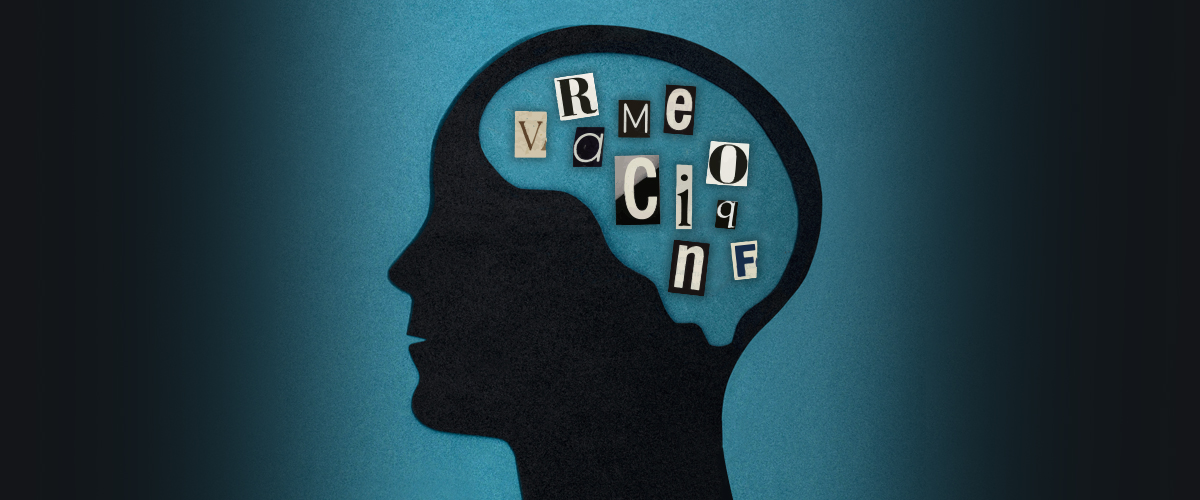What To Know About Aphasia
A neurologist from NewYork-Presbyterian explains the causes, symptoms, and treatments of this common but little-known condition.

Aphasia, a little-known neurological disorder that affects a person’s ability to communicate, became an international topic of conversation in March of 2022 when the family of actor Bruce Willis announced he has the condition and would be retiring from acting. Prior to the announcement, many people had never heard of the condition, according to the most recent survey from the National Aphasia Association — even though it is more common than multiple sclerosis, Parkinson’s disease, or muscular dystrophy — and affects around 2 million people in the United States, with nearly 180,000 people developing the condition each year.
Health Matters spoke with Dr. Mitchell Elkind, an attending neurologist on the stroke service at NewYork-Presbyterian/Columbia University Irving Medical Center, to get the facts about aphasia, including the risk factors, symptoms, and treatment options.
What is aphasia, and how common is it?
Aphasia is the loss of the ability to use language. It can include the loss of speech and writing capacity, as well as the inability to comprehend speech and the written word. It is rare for it to occur spontaneously, but it is a common manifestation of stroke.

Dr. Mitchell Elkind
What causes the condition?
The most common cause is stroke, since injury to the left half of the brain from a stroke can damage its language centers. Structural injuries to the brain for other reasons — including trauma, tumors, or infections — can also cause aphasia. When the loss of language is more gradual, then neurodegenerative conditions like Alzheimer’s disease are often the cause.
Who is most at risk?
People with vascular disease risk factors are most at risk of having a stroke that causes aphasia. Atrial fibrillation, for example, is a common heart rhythm disorder that can cause a stroke leading to aphasia. Other conditions include hypertension, diabetes, high cholesterol, obesity, smoking, and drug abuse. Rare genetic disorders may also put some people at risk. Aphasia is most common in people age 65 and over because stroke and progressive neurological conditions tend to affect older adults, but with head trauma and infections, it can affect people of all ages.
What are the signs of aphasia?
Signs of aphasia are a loss of ability to speak clearly and meaningfully, difficulty finding words, or a loss of complexity of speech content and grammatical structure. A person may also appear confused if they are having difficulty understanding speech or following instructions. In the worst cases, all meaningful communication is lost, though a person may still be able to mimic the actions of another or repeat simple, frequently used phrases like “Good morning” or “How are you?” Aphasia should also be distinguished from a condition known as dysarthria, which is a slurring of speech or loss of the ability to articulate, with preservation of the ability to use language normally.
Doctors will also look at whether aphasia developed suddenly, in which case a stroke is the most likely cause and needs to be evaluated emergently, within hours. If it has been progressing gradually over weeks, months, or years, then tumors or degenerative conditions may be responsible.
What are the symptoms?
People’s internal experience of aphasia depends on the type of aphasia they have. Those whose comprehension of speech is preserved, but who cannot speak effectively, often become very frustrated and depressed. Those who cannot comprehend may nonetheless be able to produce speech, and sometimes even speak excessively, although their words may be incorrect and their sentences nonsensical, a type of speech that neurologists refer to as “word salad.” They may be unaware of the lack of content and meaning in their speech, though, and appear almost indifferent to their problem. Ironically, the more severe the speech problem, the more indifferent to it they become.
How is it treated, and can it be cured?
Treatment of aphasia depends on the cause. If due to a stroke, emergency medical treatment with clot-busting drugs may be curative. Afterward, treating with blood thinners and controlling the risk factors like blood pressure and diabetes is essential. For all patients, including those with degenerative conditions, speech therapy may help to alleviate some of the consequences of loss of communication and help people to find alternative ways to communicate.
What can someone expect if they are diagnosed with this condition?
This also all depends on the cause. If the aphasia is due to a progressive neurological disorder like Alzheimer’s disease or a related condition, then it tends to progress slowly, though there may be ups and downs in its course.
But if the responsible stroke can be treated, the tumor removed, or the infection treated, then the aphasia can either be cured or the patient can recover some level of communication ability.
Additional Resources
Click here to learn more about the neurological rehabilitation services available at NewYork-Presbyterian.
For additional information on aphasia, please visit https://www.aphasia.org/

